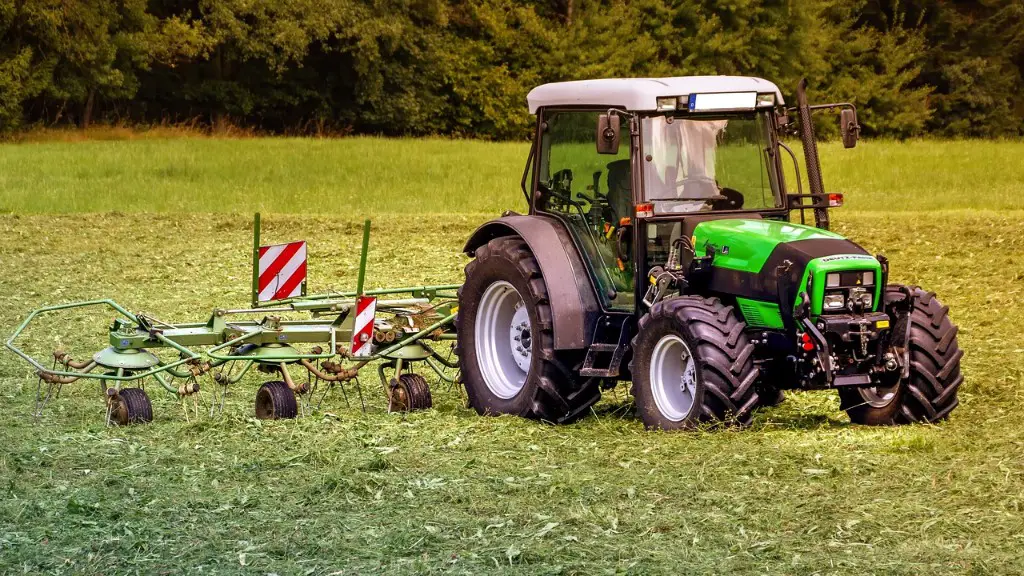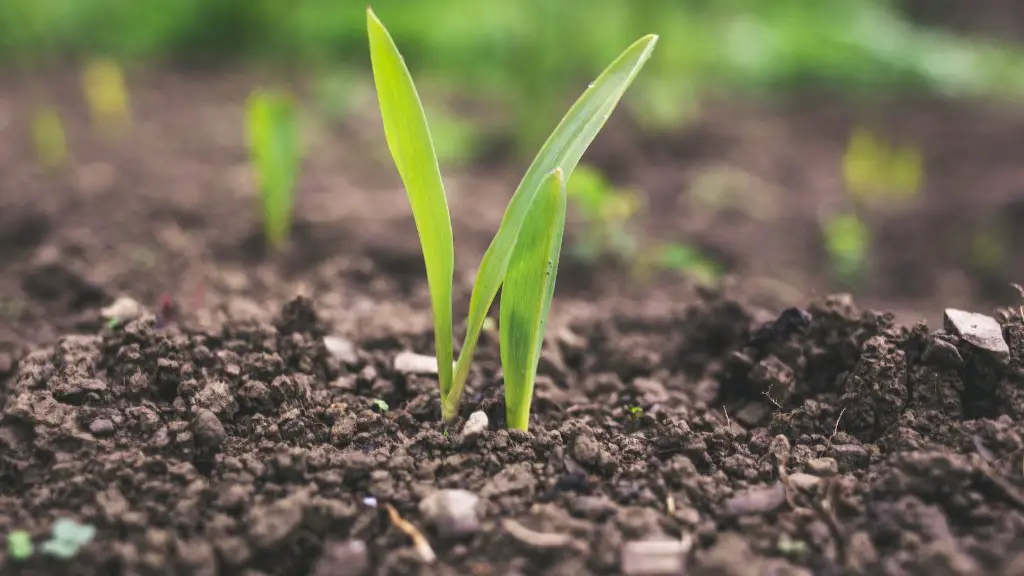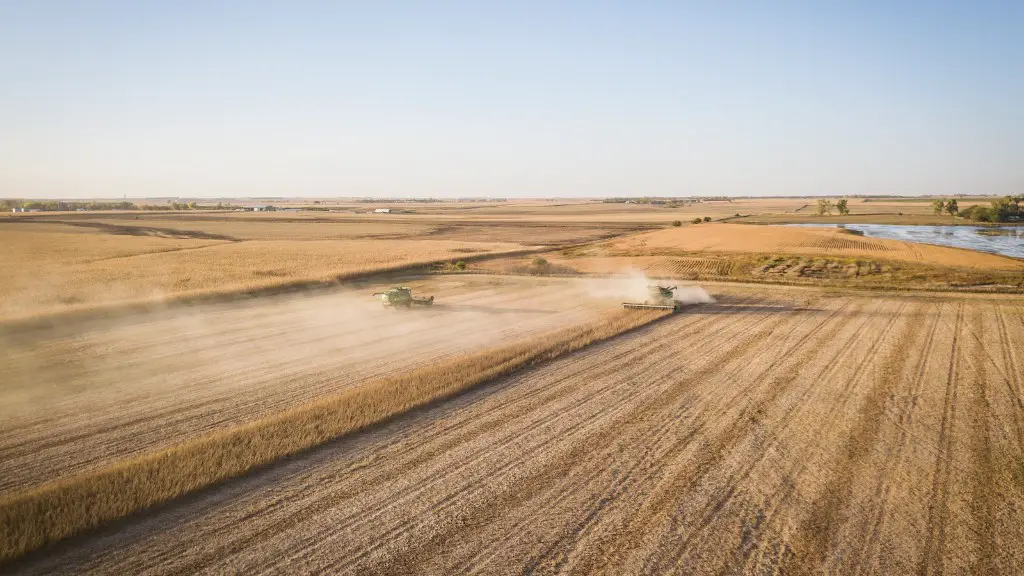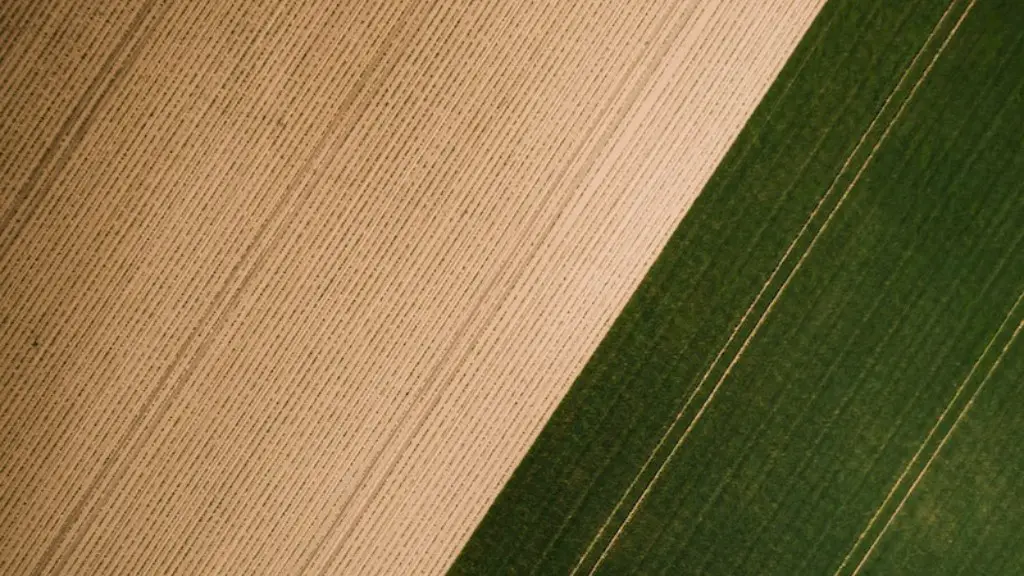In hydroponic agriculture, plants are grown in a soilless solution. This method of farming offers many potential benefits, including pest and disease control, increased crop yields, and year-round production.
Hydroponic agriculture is a type of agriculture where plants are grown in a nutrient solution instead of in soil. This type of farming is often used in greenhouses or indoors, as it can provide a controlled environment for the plants to grow.
What are 5 disadvantages of hydroponics?
Hydroponics is a method of growing plants in water without soil. While this method has many advantages, there are also some significant disadvantages that should be considered before deciding to grow hydroponically.
One of the biggest disadvantages of hydroponics is the initial cost of setting up the system. Compared to a traditional garden, a hydroponics system is more expensive to acquire and build. Additionally, hydroponics systems are often more complex and require more maintenance than a traditional garden.
Another downside to hydroponics is that the system is vulnerable to power outages. If the pump or other equipment powering the system fails, the plants will quickly suffer.
Additionally, hydroponics systems require constant monitoring and maintenance. The water must be regularly tested and adjusted to ensure that the plants are getting the nutrients they need. Waterborne diseases can also be a problem in hydroponics systems, as they can spread quickly and affect plants more severely than in soil.
Hydroponics is a great way to grow plants without the need for soil. The plants are grown in a water-based nutrient solution, which means they get all the nutrients they need without the use of soil. This can be a great way to grow plants if you don’t have access to soil, or if you want to grow plants in a controlled environment. There are many different types of hydroponic systems, so you can find one that best suits your needs.
What are the benefits of hydroponic farming
Some of the main benefits of hydroponics are that it can produce higher yields than conventional agriculture, it doesn’t require the use of herbicides or pesticides, and it can be done in a smaller space.
Hydroponics is a method of growing plants in which the roots are suspended in a solution of water and nutrients, instead of soil. This method has many advantages, but there are also some disadvantages.
One of the disadvantages of hydroponics is that a stricter control of irrigation is required. The irrigation system must be carefully adjusted to the needs of the plant and the environment. This can be easily achieved with automatic irrigation, but this requires the use of electricity.
Another disadvantage of hydroponics is that the cost of installation is higher. This is because the system is more complex and requires more equipment.
Do hydroponic vegetables taste different?
Hydroponic crops are often thought to be tasteless or “watered down.” However, crops grown in a local hydroponic vertical farm are actually better in taste and safer than food farmed in other ways. Hydroponic crops are grown in a controlled environment, so they are not exposed to the same pests and diseases that can affect other crops. This results in a higher quality, more flavorful product.
Hydroponics is a method of growing plants in a water-based solution without the use of soil. This type of farming has many benefits, but it also has some drawbacks. One of the biggest drawbacks is the high start-up cost of setting up a hydroponics system. Additionally, if the nutrient solution is not properly disposed of, it can contaminate groundwater. Another downside of hydroponics is that the produce costs more for consumers. Finally, if pests or other foreign entities infect the system water supply, the produce can be diseased.
What are the pros and cons of hydroponics?
Hydroponics is a type of gardening that uses no soil, but instead grows plants in a water and nutrient solution. This method has many benefits, but there are also some drawbacks to consider.
Pro #1: High-Quality Food For More People
One of the main advantages of hydroponics is that it can produce very high-quality food. Because plants are grown in a controlled environment, they can be given the perfect conditions to thrive. This results in much healthier plants that are more nutrient-rich than those grown in soil.
Pro #2: Reduced Water Use In Areas With Droughts
Another big advantage of hydroponics is that it can reduce water usage in areas that are prone to droughts. Because the water is constantly recycled, there is very little water waste. This is a huge benefit in areas where water is scarce.
Pro #3: Food For Heavily Populated Urban Areas
Another benefit of hydroponics is that it can provide food for heavily populated urban areas. Because space is limited in cities, it can be difficult to find enough space to grow traditional crops. Hydroponics can be done in smaller spaces, making it a perfect solution for feeding a large population.
Hydroponic plants can grow much faster than plants grown in soil, due to the controlled environment and the ability to provide the perfect amount of nutrients and water. This can be a great way to get fresh produce all year long!
What plants can grow in hydroponics
Hydroponics is a method of growing plants in a water-based solution without the use of soil. Although almost any crop can be grown hydroponically, the most common are leaf lettuce, tomatoes, peppers, cucumbers, strawberries, watercress, celery and some herbs.
One key factor in system design for a particular crop is how it is supported in the nutrient solution. For example, leaf lettuce can be grown on a floating raft system, while tomatoes and peppers are usually grown in individual pots.
hydroponics has many benefits over traditional soil-based agriculture. It is more efficient in terms of water and nutrient usage, and it allows for a controlled environment in which temperature, humidity and other conditions can be optimized for plant growth.
A full water change is the best way to keep your hydroponic system healthy and clean. You should do a full water change after you’ve topped it off enough times to fill it fully. For an average-size hydroponic system, you’ll likely need to change your water every two to three weeks.
Are hydroponic vegetables healthy?
Soil provides anchorage and support for plants, and also exists as a medium for the uptake of water and minerals by plant roots. In hydroponics, the water and minerals are dissolved in the nutrient solution, and the plants are supported by an inert medium such as gravel or sand.
The nutrient solution used in hydroponics can be carefully controlled to ensure that the plants receive the optimum mix of nutrients, and this can result in higher yields than with soil-grown plants. However, the key to successful hydroponic gardening is to maintain the correct pH and nutrient levels in the solution, and to ensure that the plants have access to adequate light and air.
As you can see, commercial hydroponic farming can be quite profitable. However, there are a few things to keep in mind. First, hydroponic farms are already profitable. This means that if you are looking to get into the business, you will need to have enough capital to get started. Second, greenhouses and indoor farms are also profitable. This is because they allow for a controlled environment, which can result in higher yields. Finally, if you are looking to get into the hydroponic farming business, you will need to have a good understanding of the economics of the industry.
What can go wrong with hydroponics
Hydroponics is a type of gardening that uses nutrient-filled water instead of soil to grow plants. While hydroponics can be a great way to grow healthy plants, there are a few common problems that can occur.
Root rot is a common problem in hydroponics. Root rot occurs when the roots of a plant are constantly wet and don’t have enough oxygen. This can cause the roots to start to decay and die. To prevent root rot, make sure to aerate your nutrient solution and keep the roots of your plants dry.
Mold growth is another common problem in hydroponics. Mold can grow on the leaves of plants and on the walls of the growing chamber. Mold can cause the leaves of a plant to turn yellow and fall off. To prevent mold growth, keep your growing area clean and dry.
Plant leaf issues can also be a problem in hydroponics. Yellowing leaves, stunted growth, and leaf drop can all be caused by a lack of nutrients. To prevent plant leaf issues, make sure to fertilize your plants regularly.
Pests can also be a problem in hydroponics. pests can contaminate your nutrient solution and damage your plants. To prevent pests, keep your
If you’re interested in starting a hydroponic garden, these are some of the easiest plants to get started with. Greens like lettuce, spinach, Swiss chard, and kale are all great options, as are herbs like basil, parsley, oregano, cilantro, and mint. Fruiting plants like tomatoes, strawberries, and hot peppers are also relatively easy to grow hydroponically. Just be sure to do your research on the specific needs of each plant before getting started.
Which plant is not suitable for hydroponics?
It is important to be aware of the space requirements of the plants you are wanting to grow hydroponically. Some vegetables and fruits use up too much space and can quickly overtake the area, making them less suitable for the hydroponic system. Avoid vining plants and those that require a lot of space such as zucchini, squash, etc.
Crops that cannot be grown hydroponically include corn, potatoes, sweet potatoes, and other large root vegetables. Vine crops like cabbage, pumpkin, and other gourds also cannot be grown hydroponically.
Warp Up
Hydroponic agriculture is a form of agriculture where plants are grown in a nutrient-rich water solution, rather than in soil. This type of agriculture can be used to grow plants in a variety of settings, including greenhouses, warehouses, and even on the International Space Station.
Hydroponic agriculture is a type of agriculture that uses water instead of soil to grow plants. This type of agriculture is becoming increasingly popular as it requires less water than traditional methods and can be done indoors, making it ideal for urban areas.





